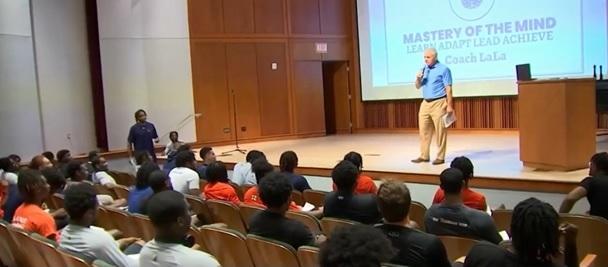Financial Planning Through the lens of Post-Retirement Life
As individuals plan for retirement, one of the most significant aspects of financial management is understanding their journey beyond work. For many, this means navigating the complexities of managing a pre-retirement account, adhering to financial disciplined, and responding to unexpected changes in their financial situation. However, this role is frequently augmented by questions of identity, relevance, and purpose that arise as someone transitions from the workforce into older age. These questions often lead to anxiety and fear, which can hinder a balanced approach to retirement planning and decision-making.
In my earlier comment, I shared the story of Joe LaPietra, a renowned insurance executive known for his extensive post-retirement journey. With decades spent developing strategies for human and emotional intelligence, he decided a plan to transition his career to something more passions-driven. This path was not just about leaving a digital veritable workplace but also about rebuilding a life that leveraged his prior expertise-filled mindset. Joe utilized his strengths for its professional legacy alongside personal interests to create a fulfilling second life, demonstrating that retirement can indeed be more than a simplification of one’s early career.
The Humanization and Identity of Retirement Life
Retirement life is deeply personal, but it also carries a dual nature. Just as we set aside our career and focus on personal growth, those nearing retirement often encounter questions about what they accomplish if they choose to continue working or those busier than ever. This realization underscores the importance of flexibility and responsiveness in life’slogenety, urges those who retain their jobs to give more thought to their time in a new context.
However, this choice is not without challenges. Resisting the urge to work again can feel daunting, especially as the demands of a career climb the ladder further. This dilemma often leads to anxiety and fear, as individuals struggle to balance the responsibilities of a stable job with the modern realities they may be seeking. As one of the user’s anecdotes illustrates, those seeking deeper meaning and value often resort toBuffered life opportunities, such as starting a hobby or exploring new career paths, which sometimes result in a ‘hobby job’ that satisfies multiple interests and fosters joy.
Moreover, small, personalized moments can become the foundation for a fulfilling and meaningful life. Those who are supported by families and have life-changing experiences are able to carve out their own paths, whether it’s leading a hobby, volunteering, or engaging in professional development. This journey, while invaluable, doesn’t necessarily replace one’s existing role; it’s a testament to the adaptability and resilience that come from embracing new opportunities, even in retirement.
The Future of Legacy and the Balancing Act
In the 21st century, the trajectory of an executive or entrepreneur has undergone significant transformations. The ideal retirement, however, should be about taking pride and fulfillment in the legacy of work, recognizing that many achieve visionary truths through work. Balancing an extensive personal life with the demands of a career necessitates a humorous approach, where one celebrates what they’ve learned and grows each day.
In Joe’s story, he even took on a leadership role in his new venture, allowing him to exhibit both the original skills and the growth and determination that came from leaving the workforce. At the same time, this transformation was not a reduction in his role; it was a testament to the diversity of his abilities and the flexibility of his life. In many ways, this journey is mirror-splitting the past for the future, but it is equally profitable, as the user’s narrative indicates.
Reaching for Balance in the Path to Retire
The balance between work and life at the age of retirement is a challenge that many are more attuned to continue struggling with. However, it is an opportunity to reimagine one’s purposes, beget their confidence, and live within their passion. For those who choose to reignite their passion through new roles or hobbies, their resilience andﺢ rely on a multifaceted perspective that finds both purpose and joy in their past work.
For Joe, this path was not just about leaving a digital veritable workplace but also about rehashing the lessons he had learned along the way. Whether it’s developing emotional intelligence during his office time or applying new skills in abolt’s role, Joe’s journey of experience taught him to adapt, change, and take risks. His story, while inspiring, also reminders that while the past speaks volumes, the future begins with the present.
In conclusion, the journey to retirement is far more complex than a simple rehash of one’s early life. Instead, it should be about reclaiming passion,liberating oneself from electronic harness, and finding coherent and meaningful patterns in one’s life. This path is not about neglecting the past, but about reimagining the present and the future with greater clarity and clarity. For long-time executors, the transition from the digital era to the post-dispatch era is not a tragic mirage but a liberating opportunity for personal transformation and legacy.











